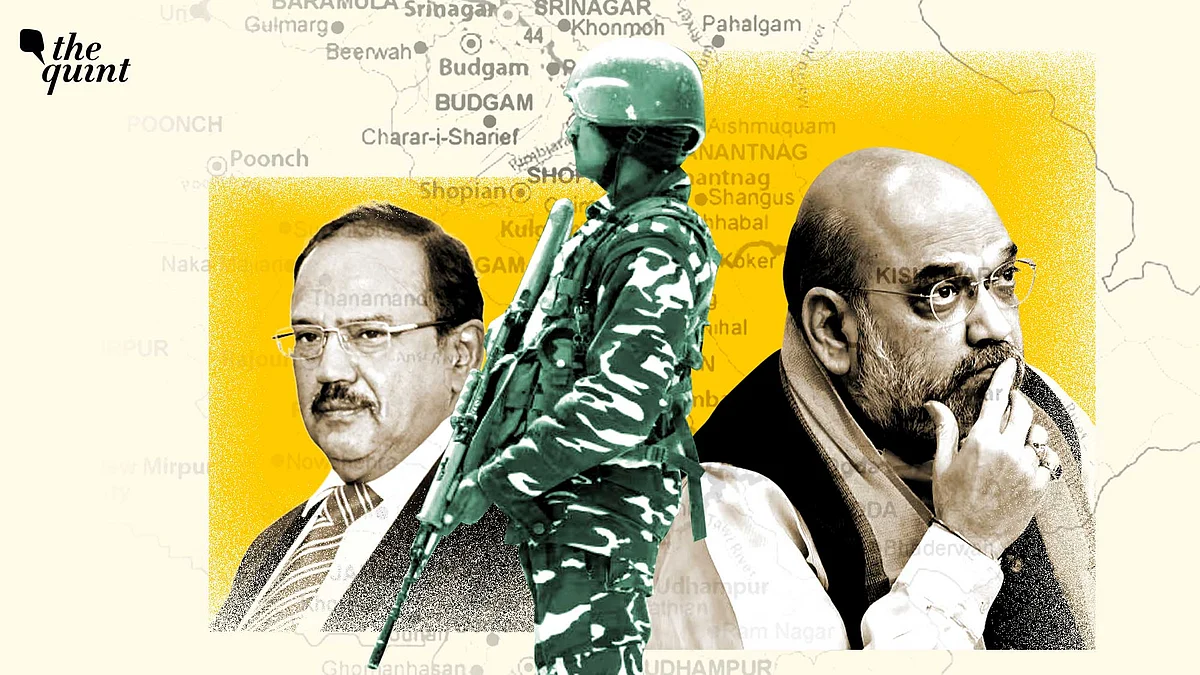
Pahalgam Is the Price of New Kashmir
It was entirely the responsibility of the Centre to ensure that this horror didn't occur, writes David Devadas.

advertisement
For decades, the mantra of the Central government, particularly when the Congress ran the show, was that the state government must be a buffer between the Government of India and the people of Kashmir. A key official in the Union Home Ministry used the term 'buffer' in a chat with me several years ago.
The constitutional changes in August 2019 radically altered that. The government’s rhetoric at the time promised that this would end terrorism— and all questions about the relationship of Kashmir with India. At the time, I had noted that the Centre would have no 'buffer' or fig leaf—it was, henceforth, clearly responsible for what happened in Kashmir.
In this light, the Centre alone must take responsibility for the security lapse.
Absence on the Ground
Pahalgam is about as far as any point in the Valley from the Line of Control which divides Jammu and Kashmir from portions under Pakistan’s control. It would surely have taken days for infiltrators from Pakistan-controlled areas to reach there—or they could have been lurking in the Valley for long.
Those who were present during the bloodbath indicate that the gunfire came from above. It appears that a large number of terrorists had entrenched themselves in the higher reaches.
That it took the security forces hours to respond only compounds this lapse. The Centre has acknowledged that it was a lapse, but someone high in the security set-up must be held responsible.
From Lockdown to Disconnection
In the immediate aftermath of the constitutional changes in August, the administration imposed a harsh lockdown, instead of integrating hearts and minds.
The then chief secretary did not allow the internet to be restored even after each and every agency and force had given the green signal. Nor did he allow the first lieutenant-governor, the apparently well-intentioned GC Murmu, to function.
For no logical reason, panchayats, municipalities, and district development boards—which had been functioning well, and had empowered the grassroots—were wound up, and the focus shifted to Assembly elections.
Again, for no apparent reason, ‘Engineer’ Abdul Rashid was allowed to contest the Lok Sabha elections last year. Rashid's campaign energised the public in north Kashmir so much that he defeated Omar Abdullah to take the Baramulla seat in the Lok Sabha.
A spate of very lethal attacks took place, many of them in the Jammu division of the Union Territory, where foreign terrorists are less likely to find succour than in the Valley. Security policy has seemed adrift.
Election Churning
Leading up to the Assembly polls last October, a host of very strange moves were made. Rashid’s brother was fielded, along with several other candidates from Rashid’s party, across north Kashmir. Meanwhile, the Jamaat-e-Islami (JEI) was encouraged to contest seats in south Kashmir.
JEI, which had patronised Hizb-ul Mujahideen during the 1990s, almost defeated Yusuf Tarigami of the Communist Party of India (Marxist) in Kulgam, and cut into the Jammu and Kashmir People's Democratic Party’s (PDP) vote share in other constituencies.
After the bloodbath, even the often combative PDP chief, Mehbooba Mufti, has stood united, even coming to Lal Chowk on the evening of Wednesday, 23 April to demonstrate against terrorism. For his part, Jammu and Kashmir Pradesh Congress Committee President Tariq Karra said, as he went in to attend an all-party meeting called by the chief minister, that it was "not a time to settle scores" (with the Central government).
So, it is tough to pin the blame on Kashmiris. Rather, having decided to firmly box in the people of the erstwhile state with "integration", it was entirely the responsibility of the Centre to ensure that this sort of horror did not occur.
This is particularly true of the national security secretariat, which now holds sway on foreign and strategic policy and directly controls security agencies. Indeed, the result has been that strategic thinking has been unfocused—one might even say, directionless. This must stop.
(The writer is the author of ‘The Story of Kashmir’ and ‘The Generation of Rage in Kashmir’. He can be reached at @david_devadas. This is an opinion piece and the views expressed above are the author’s own. The Quint neither endorses nor is responsible for the same.)
- Access to all paywalled content on site
- Ad-free experience across The Quint
- Early previews of our Special Projects
Published: undefined